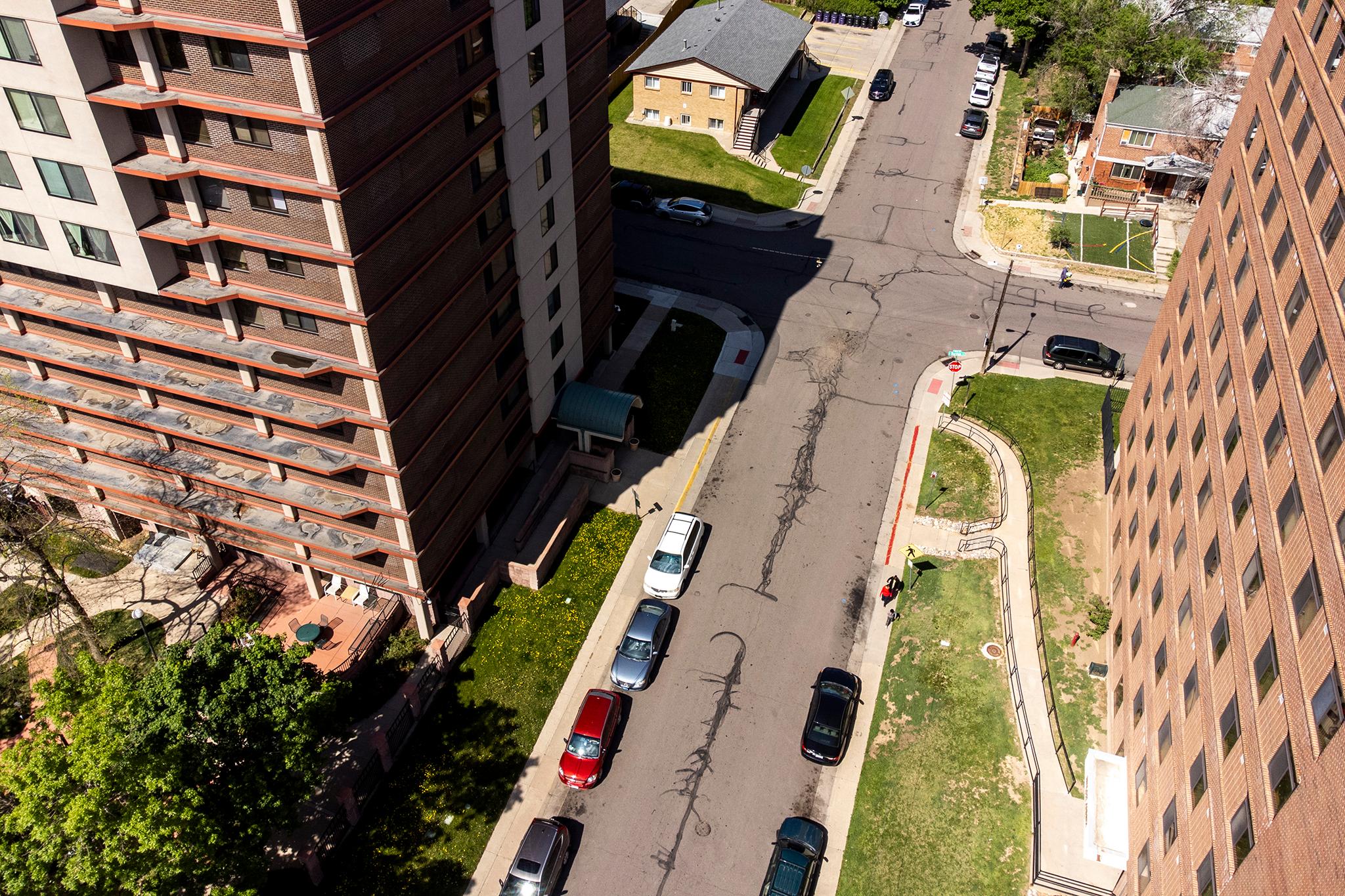Denver property owners will not start paying fees to repair city sidewalks until January of 2025 after City Council voted unanimously Monday to postpone the fees for a second time. The bill now goes to Mayor Mike Johnston’s desk for a final signature.
After Denver voters approved the program in November 2022, the fees were supposed to kick in January 2024.
Last fall, City Council postponed that date to July of this year to work out issues with the fee structure — a snag that will now push the rollout another six months to January.
The program levies fees on residential and commercial property owners to raise money to repair broken sidewalks and build them where they currently do not exist. Previously, responsibility for fixing sidewalks belonged to the property owner.
The original version of the program charged owners based on linear footage facing the street, along with the business of the street. While most residential residents could expect to pay between $100 and $200, some people wound up with hundreds of dollars in fees annually.
That’s why the city convened a committee to work out issues with the fee structure and figure out how to implement the program. The city still needs to pass a bill formally changing that structure.
“We are, I'm going to say about 97% through the process of reworking the fee structure, so that it's more equitable and so that folks that just happen to live on a corner lot don’t get hit way more heavily than their neighbors every year until death do us part,” said Councilmember Paul Kashmann, a member of the committee working on implementing the program.
The new structure will impose standardized fee rates based on property type rather than linear footage, and expand who has access to low-income discounts.
It’s still unclear how long it will take to build out and fix Denver’s sidewalks.
Organizers behind the ballot measure estimated the program would raise more than $40 million per year that, along with bonds, could generate $850 million and get the job done in nine years.
But a city analysis found the program could face a $2.8 billion shortfall and take up to 30 years.
Until the initiative gets underway, Denver’s broken sidewalks could languish in the short term. The city has a small fund to fix the worst offenders, but otherwise needs to wait until the fees kick in.
“Thank you for making sure that this is the last extension,” said Councilmember Chris Hinds. “[Poor sidewalks are] damaging to my wheelchair and other people with strollers and mobility aids. It's a very important feature of accessibility, but it's also an important part of our city to have alternatives to cars, and the only way we're going to do that is with a broad, inviting pedestrian experience.”













